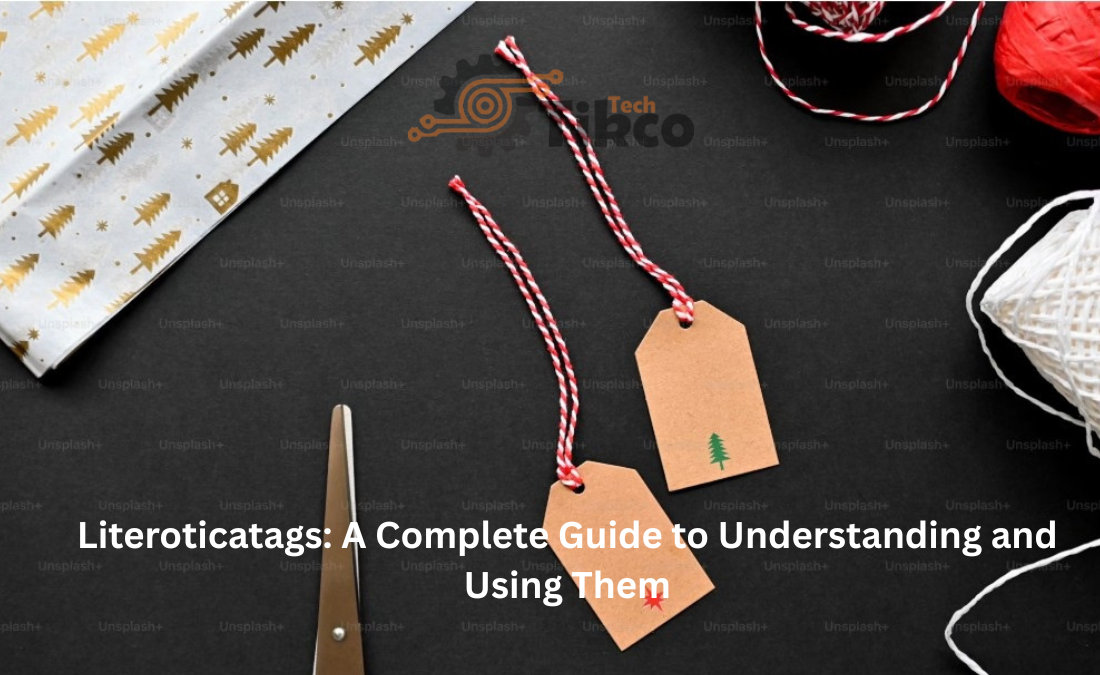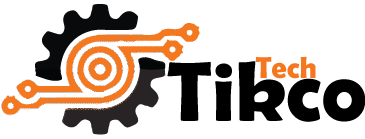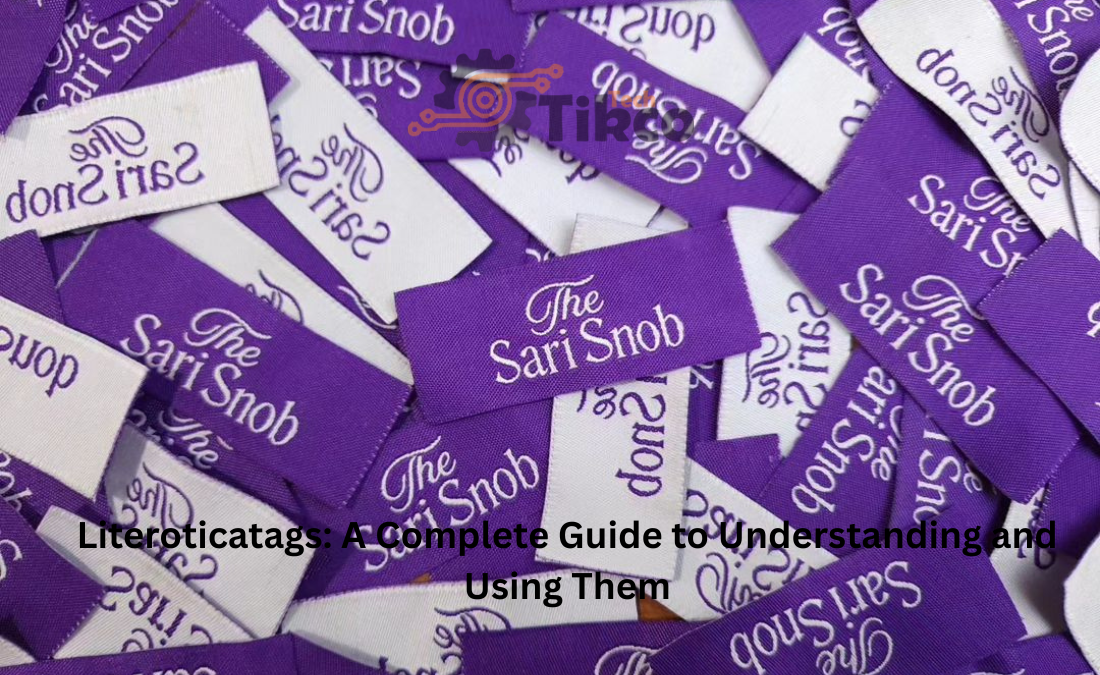Introduction to Literoticatags
In the digital era, storytelling platforms have transformed the way readers and writers connect. One such platform is Literoticatags, a well-known space for erotic literature where users can both publish and consume stories. A unique feature of the platform is literoticatags, which function as identifiers that help organize, categorize, and personalize the browsing experience. These tags not only make it easier for readers to find content but also assist writers in reaching the right audience.
This article provides an in-depth look at literoticatags, explaining their purpose, how they are used, their benefits, and the best practices for utilizing them effectively.
What Are Literoticatags?
Literoticatags are keyword-based labels added to stories or other content on the Literotica platform. They serve as searchable identifiers that classify the subject matter, themes, or specific elements within a piece of writing. For example, a story involving fantasy and romance might be tagged with “fantasy,” “romance,” “magic,” or “supernatural.”
By using literoticatags, writers highlight the central themes of their work, while readers can filter stories that match their preferences. This makes the user experience smoother and more enjoyable.
Importance of Literoticatags in Story Discovery
One of the most significant roles of literoticatags is their contribution to content discovery. On platforms with thousands of stories, readers may find it overwhelming to locate material tailored to their tastes. Literoticatags act as guiding tools, allowing users to browse stories that include specific elements.
For instance:
- A user who enjoys historical romance can click on the “historical” tag.
- Someone who prefers sci-fi adventures can search through the “sci-fi” tag.
- Those who want darker themes can explore tags like “mystery” or “suspense.”
Without literoticatags, readers would have to sift through endless pages of content, often leading to frustration. Tags streamline the process and improve satisfaction on the platform.
Types of Literoticatags Commonly Used
The variety of literoticatags reflects the wide range of content available on the platform. These tags can be broadly divided into categories:
- Genre Tags – Examples include romance, sci-fi, fantasy, thriller, and drama.
- Theme Tags – These might highlight specific story elements such as love, betrayal, adventure, or revenge.
- Character Tags – Used to describe the types of characters involved, like “vampire,” “student,” “teacher,” or “warrior.”
- Setting Tags – Indicate where the story takes place, such as “school,” “castle,” “space,” or “city.”
- Tone or Style Tags – For stories that emphasize particular writing styles, such as “humor,” “dark,” or “emotional.”
Each of these categories provides readers with clues about what to expect, while also giving writers a way to highlight the unique aspects of their creations.
How Writers Benefit from Literoticatags
For authors, literoticatags are a powerful tool for visibility. Stories on a crowded platform can easily get lost, but appropriate tagging ensures that content reaches the right audience. Some of the benefits for writers include:
- Increased Exposure: Correctly tagged stories appear in more searches, improving visibility.
- Targeted Readership: Tags attract readers who are genuinely interested in specific themes.
- Community Engagement: Tags help writers connect with readers who enjoy similar genres, fostering loyal followership.
- Improved Feedback: Readers who find stories through tags are more likely to provide meaningful feedback, since the content aligns with their interests.
In short, literoticatags give writers the ability to market their stories effectively without investing in external promotion.

How Readers Benefit from Literoticatags
From the reader’s perspective, literoticatags act as personalized filters. They save time and enhance satisfaction by allowing users to quickly locate content that appeals to them. The major benefits include:
- Customizable Reading Experience: Readers can follow specific tags to build a reading list that reflects their tastes.
- Easy Navigation: Tags provide a structured way to explore different categories and discover new authors.
- Diverse Exploration: While tags help readers find familiar genres, they also encourage exploration of new ones by linking related tags.
- Quality Control: Readers can avoid content they do not enjoy by skipping certain tags, ensuring a better experience.
Thus, literoticatags make the reading journey both efficient and enjoyable.
Best Practices for Using Literoticatags as a Writer
While literoticatags are incredibly useful, their effectiveness depends on how they are applied. Writers should follow best practices to ensure maximum visibility and engagement:
- Be Accurate – Use tags that truly reflect the story’s content. Misleading tags may frustrate readers and damage credibility.
- Avoid Over-Tagging – Too many tags can dilute the story’s focus. Instead, stick to a handful of the most relevant ones.
- Mix Broad and Specific Tags – Use a combination of general tags (like “romance”) and niche tags (like “college romance”) for better discoverability.
- Stay Updated – As trends change, new tags emerge. Writers should adapt their tagging strategies accordingly.
- Consistency Across Stories – If an author writes multiple stories in similar genres, consistent tagging builds a recognizable brand.
By following these practices, writers can maximize the power of literoticatags for long-term growth.
Common Mistakes with Literoticatags
Despite their importance, literoticatags are often misused. Some of the most common mistakes include:
- Irrelevant Tags: Adding unrelated tags just to gain attention confuses readers and reduces trust.
- Excessive Tagging: Overloading a story with tags can make it appear spammy.
- Neglecting Tags: Some writers fail to use tags altogether, limiting their reach and visibility.
- Overly Generic Tags: Using only broad tags like “romance” or “fantasy” makes it harder to stand out.
Avoiding these errors is essential for maximizing the benefits of literoticatags.
The Evolution of Literoticatags Over Time
Over the years, literoticatags have evolved from simple categorization tools into sophisticated filters that reflect changing reader preferences. Early tags were limited to broad genres, but now they include nuanced themes, hybrid genres, and niche interests.
For example, modern readers might look for tags such as “paranormal romance,” “dark comedy,” or “post-apocalyptic drama.” This evolution shows how tags have grown to reflect the diversity and creativity of both writers and readers.
The Future of Literoticatags
As online storytelling platforms expand, the role of literoticatags will likely grow. Possible future developments include:
- AI-Powered Tagging: Automated systems may analyze stories and suggest tags for greater accuracy.
- Tag Recommendation Engines: Similar to “related searches,” readers might get suggestions for new tags based on their reading history.
- Community-Driven Tagging: Readers could be allowed to suggest or vote on tags, ensuring even greater relevance.
- Cross-Platform Tags: As platforms become interconnected, tags could unify content discovery across multiple websites.
These advancements would make literoticatags even more dynamic and user-friendly.
Conclusion: Why Literoticatags Matter
In conclusion, literoticatags are more than just labels—they are essential tools that enhance the experience of both readers and writers. By categorizing stories effectively, they make content discovery smoother, ensure better visibility for authors, and create a personalized reading environment for users.
Writers who use literoticatags wisely can attract a loyal audience, while readers can navigate vast libraries with ease. As digital storytelling continues to evolve, literoticatags will remain a central part of the process, shaping the way we find and enjoy stories online.

